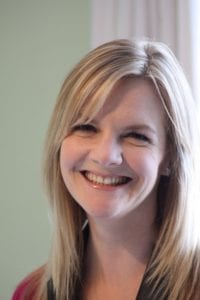Dr Alison Gregory, Research Fellow (Traumatised and Vulnerable Populations), a speaker from a former Academic Journeys event talks on the Bristol Clear blog about her personal career story, how she has navigated academia, the big decisions and what she wished she’d know from the start.
What I do:
‘It might be nothing, but it could mean everything’ – you’ve spotted something odd happening in the relationship of someone close to you. They may be a relative, a friend, a colleague, a neighbour, or a parent you see in the playground after school. It may be that you’ve never met their partner, or that their partner seems wonderful, but there’s a nagging feeling inside that something’s not quite right. You ask yourself, “Should I do something? Say something?” But your doubts tell you “It’s a private matter. What if I make it worse? Get it wrong? Offend the person?” This is the research area I’ve been studying for the past 8 years. I started with a PhD (On the outside looking in: the shared burden of domestic violence) exploring the impacts for people providing support in an informal capacity to women who had experienced domestic violence. With two subsequent fellowships (NIHR SPCR and EBI funded), I have been developing this work by: supporting related public health campaigns across the UK, conducting further research with informal supporters and specialist helpline staff, developing national and international collaborations, and producing training materials for professionals. Having carried out this crucial groundwork, I’m now at the point (with an AXA Research Fund fellowship) where I can begin developing and piloting an intervention, targeted specifically for informal supporters. My hope is to produce something tangible, which genuinely has dual-benefit; benefiting, supporting and improving safety for both informal supporters and consequently survivors.
Why Academia?:
As a former 9-year-old who aspired to be an air hostess, I regularly ask myself the question, “how on earth did I end up here?”. I took a rather meandering and perhaps less-usual route towards academia. Having completed an undergraduate degree in Maths and Psychology, I never saw myself working in a university. Instead, I spend many years in practitioner and managerial roles in the NHS and for the police. I retrained as a person-centred counsellor and sought additional employment that I could undertake alongside my practitioner role, and that’s when I spotted a part-time role in what is now the Centre for Academic Primary Care. Starting on a project to train GPs and nurses how to inquire, and response to disclosures, about domestic violence felt like a good fit – my first ever counselling client had been a healthcare professional, who was herself experiencing subtle but dangerous partner abuse. Once part of this field, my interest in friends and family members began to grow, not least because I found myself in exactly their position, with several people disclosing their own experiences to me or seeking my advice about how to help someone they knew. So, why have I remained in academia? Well, primarily because I believe that this research is needed and that it will genuinely make a difference in the world. There are days, particularly when I’ve been sat in front of a screen for too long, that this doesn’t feel the case. However, taking opportunities in the course of my work to spend time with people directly affected – whether survivors, informal supporters, front-line specialist staff or service commissioners reignites my sense of purpose and commitment. Now, as a Research Fellow, I feel I get the best of both worlds; I have enough independence to pursue the work I consider important, using the methods I feel most appropriate and respectful to participants, whilst still maintaining a very hands-on role, in which I regularly meet participants face-to-face.
My career path & the big decisions:
Making the decision to remain a pathway 2 researcher has been a mixed-blessing and certainly one I continually grapple with; it provides very little in the way of job security and stability, but it does mean that I remain a researcher first-and-foremost with greater flexibility to steer the direction of my proposals. And having great mentors, with whom I can be completely honest, has been invaluable to me, as I’ve navigated the highs and lows resulting both from that decision and from others regarding the mysterious and sometimes thorny academic world.
My advice to my younger self:
Each time that I’ve managed to secure funding, I’ve wished that I’d worried less about how I was going to keep myself financially afloat. There is certainly a degree of ‘luck’ and timing in this, rather bonkers, academic context, but resilience, persistence and endurance are also key; I wish I’d understood from the outset that this is definitely a marathon, not a sprint!
For a chance to hear from academic staff members, discussing their own personal career stories about their journeys in academic, and who has helped, influenced and inspired them along the way, book onto our next event:
Academic Journeys, Thursday 4th April, 14:00 – 16:00 – Book your place



